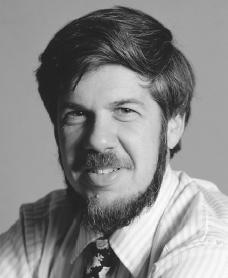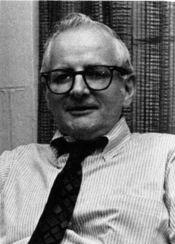Related Research Articles

Daniel Clement Dennett III is an American philosopher, writer, and cognitive scientist whose research centers on the philosophy of mind, philosophy of science, and philosophy of biology, particularly as those fields relate to evolutionary biology and cognitive science.
Evolutionary psychology is a theoretical approach in psychology that examines cognition and behavior from a modern evolutionary perspective. It seeks to identify human psychological adaptations with regards to the ancestral problems they evolved to solve. In this framework, psychological traits and mechanisms are either functional products of natural and sexual selection or non-adaptive by-products of other adaptive traits.

Edward Osborne WilsonForMemRS was an American biologist, naturalist, ecologist, and entomologist known for developing the field of sociobiology.

Richard Dawkins is a British evolutionary biologist and author. He is an emeritus fellow of New College, Oxford, and was Professor for Public Understanding of Science in the University of Oxford from 1995 to 2008. His 1976 book The Selfish Gene popularised the gene-centred view of evolution, as well as coining the term meme. Dawkins has won several academic and writing awards.

Stephen Jay Gould was an American paleontologist, evolutionary biologist, and historian of science. He was one of the most influential and widely read authors of popular science of his generation. Gould spent most of his career teaching at Harvard University and working at the American Museum of Natural History in New York. In 1996, Gould was hired as the Vincent Astor Visiting Research Professor of Biology at New York University, after which he divided his time teaching between there and Harvard.
Sociobiology is a field of biology that aims to examine and explain social behavior in terms of evolution. It draws from disciplines including psychology, ethology, anthropology, evolution, zoology, archaeology, and population genetics. Within the study of human societies, sociobiology is closely allied to evolutionary anthropology, human behavioral ecology, evolutionary psychology, and sociology.

The Selfish Gene is a 1976 book on evolution by the ethologist Richard Dawkins, in which the author builds upon the principal theory of George C. Williams's Adaptation and Natural Selection (1966). Dawkins uses the term "selfish gene" as a way of expressing the gene-centred view of evolution, popularising ideas developed during the 1960s by W. D. Hamilton and others. From the gene-centred view, it follows that the more two individuals are genetically related, the more sense it makes for them to behave cooperatively with each other.
Biological determinism, also known as genetic determinism, is the belief that human behaviour is directly controlled by an individual's genes or some component of their physiology, generally at the expense of the role of the environment, whether in embryonic development or in learning. Genetic reductionism is a similar concept, but it is distinct from genetic determinism in that the former refers to the level of understanding, while the latter refers to the supposedly causal role of genes. Biological determinism has been associated with movements in science and society including eugenics, scientific racism, and the debates around the heritability of IQ, the basis of sexual orientation, and sociobiology.

Richard Charles Lewontin was an American evolutionary biologist, mathematician, geneticist, and social commentator. A leader in developing the mathematical basis of population genetics and evolutionary theory, he applied techniques from molecular biology, such as gel electrophoresis, to questions of genetic variation and evolution.

This is a list of topics in evolutionary biology.

Not in Our Genes: Biology, Ideology and Human Nature is a 1984 book by the evolutionary geneticist Richard Lewontin, the neurobiologist Steven Rose, and the psychologist Leon Kamin, in which the authors criticize sociobiology and genetic determinism and advocate a socialist society. Its themes include the relationship between biology and society, the nature versus nurture debate, and the intersection of science and ideology.
Robert Ludlow "Bob" Trivers is an American evolutionary biologist and sociobiologist. Trivers proposed the theories of reciprocal altruism (1971), parental investment (1972), facultative sex ratio determination (1973), and parent–offspring conflict (1974). He has also contributed by explaining self-deception as an adaptive evolutionary strategy and discussing intragenomic conflict.

Leon J. Kamin was an American psychologist known for his contributions to learning theory and his critique of estimates of the heritability of IQ. He studied under Richard Solomon at Harvard and contributed several important ideas about conditioning, including the "blocking effect".
The term standard social science model (SSSM) was first introduced by John Tooby and Leda Cosmides in the 1992 edited volume The Adapted Mind. They used SSSM as a reference to social science philosophies related to the blank slate, relativism, social constructionism, and cultural determinism. They argue that those philosophies, capsulized within SSSM, formed the dominant theoretical paradigm in the development of the social sciences during the 20th century. According to their proposed SSSM paradigm, the mind is a general-purpose cognitive device shaped almost entirely by culture.
Isadore Nabi was a pseudonym used by a group of scientists including Richard Lewontin, Richard Levins, Robert MacArthur, and Leigh van Valen in the 1960s. Inspired by the work of Nicolas Bourbaki, they allegedly hoped to create a unified approach to evolutionary biology. However, the project was aborted and the name was reused in the 1980s for satirical purposes.

Richard Dawkins: How a Scientist Changed the Way We Think is a festschrift of 25 essays written in recognition of the life and work of Richard Dawkins. It was published in 2006, to coincide with the 30th anniversary of the publication of The Selfish Gene. A wide range of topics is covered from many fields including evolutionary biology, philosophy, and psychology. Space is also given to writers who are not in full agreement with Dawkins. The book is edited by two of Dawkins' former PhD students, Alan Grafen and Mark Ridley. (ISBN 9780199291168)
Evolutionary psychology seeks to identify and understand human psychological traits that have evolved in much the same way as biological traits, through adaptation to environmental cues. Furthermore, it tends toward viewing the vast majority of psychological traits, certainly the most important ones, as the result of past adaptions, which has generated significant controversy and criticism from competing fields. These criticisms include disputes about the testability of evolutionary hypotheses, cognitive assumptions such as massive modularity, vagueness stemming from assumptions about the environment that leads to evolutionary adaptation, the importance of non-genetic and non-adaptive explanations, as well as political and ethical issues in the field itself.

The following list of publications by Richard Dawkins is a chronological list of papers, articles, essays and books published by British ethologist and evolutionary biologist Richard Dawkins.
Hilary Ann Rose is a British sociologist.

The Evolution of Human Sexuality is a 1979 book about human sexuality by the anthropologist Donald Symons, in which the author discusses topics such as human sexual anatomy, ovulation, orgasm, homosexuality, sexual promiscuity, and rape, attempting to show how evolutionary concepts can be applied to humans. Symons argues that the female orgasm is not an adaptive trait and that women have the capacity for it only because orgasm is adaptive for men, and that differences between the sexual behavior of male and female homosexuals help to show underlying differences between male and female sexuality. In his view, homosexual men tend to be sexually promiscuous because of the tendency of men in general to desire sex with a large number of partners, a tendency that in heterosexual men is usually restrained by women's typical lack of interest in promiscuous sex. Symons also argues that rape can be explained in evolutionary terms and feminist claims that it is not sexually motivated are incorrect.
References
- 1 2 Brown, Andrew (15 December 2001). "The Guardian Profile - Steven Rose". The Guardian. ISSN 0261-3077 . Retrieved 16 December 2018.
- ↑ 'ROSE, Prof. Steven Peter Russell', Who's Who 2013, A & C Black, an imprint of Bloomsbury Publishing plc, 2013; online edn, Oxford University Press, Dec 2012 ; online edn, Nov 2012 accessed 6 Aug 2013
- ↑ Rose, Steven P. (2007). "In the Beginning". In Holloway, Richard (ed.). Revelations: Personal Responses to the Books of the Bible. Canongate Books. p. 41. ISBN 978-1-84195-737-1.
Did the editors of this series of volumes of the King James realise that I was an ex-Orthodox Jew, an atheist and a biologist to boot when they suggested that I write this introduction?
- 1 2 Biography at The Moral Maze.
- 1 2 "Biography". Steven Rose Online. Retrieved 26 April 2018.
- ↑ "Open Letter: More pressure for Mid East peace". The Guardian. 6 April 2002.
- ↑ Beckett, Andy; MacAskill, Ewen (12 December 2002). "British academic boycott of Israel gathers pace". The Guardian.
- ↑ "BRICUP UK tour Dec 09". BRICUP. 2 December 2013. Retrieved 26 April 2018.
- ↑ "Neurotechnology - About the Working Party | Nuffield Council on Bioethics". Archived from the original on 13 June 2013. Retrieved 26 May 2013.[ full citation needed ]
- ↑ Lifeline: Steven Rose, The Lancet Vol. 355 Issue 9213 p. 1472, 22 April 2000.
- ↑ Rose, Steven Peter Russell; Lewontin, Richard Charles; Kamin, Leon J. (1984). Not in Our Genes: Biology, Ideology and Human Nature. p. ix. ISBN 978-0-14-022605-8.
- ↑ Jay Joseph, PsyD (4 April 2018). "Endnotes for "Leon J. Kamin (1927-2017): A Nemesis of Genetic Determinism and Scientific Racism"" (PDF). Mad In America . Retrieved 26 April 2018.
- ↑ Bateson, Patrick; Dawkins, Richard (24 January 1985). "Sociobiology: the debate continues". New Scientist . 105 (1440): 28–60.
- ↑ Rose, Steven P R (2006). "Commentary: Heritability estimates—long past their sell-by date". International Journal of Epidemiology . 35 (3): 525–7. doi: 10.1093/ije/dyl064 . PMID 16645027.